
For indigenous women in the villages on the banks of beautiful Lake Atitlan, life is not always as picturesque as their placid surroundings. Although many of the villages in the Lake Atitlan region are renowned for their form of handicrafts, or artesania, earning a sustainable, living wage through sales of these handicrafts -- no matter how unique or well-made -- presents many challenges. The thousands of tourists who visit the region each year don't make it to every small village, and even if they did, competition for craft sales is fierce. It takes more than crafting skills to be a successful artisan. For the artisan group Mujeres Panabaj, working together as a cooperative instead of trying to make it as individual artisans has been the key to success.
Founded in 1996, Mujeres Panabaj, is a cooperative of women artisans in Santiago Atitlan. The group started out as “Arte Indigena T’zutujil”, a name reflective of the T’zutujil Maya people who founded their village of Panabaj and that of nearby Tzanchaj, and whose culture and language are prevalent even today. The group has faced a long and sometimes arduous road to their current success. One of the most tragic times they faced was in October, 2005 when a mudslide triggered by the heavy rains from Hurricane Stan struck, leaving an estimated 600 of the 3,000 villagers dead or missing, and those who escaped with little more than the clothes they were wearing. Many of the artisan group lost their husbands, children, and houses.
Atitlan. The group started out as “Arte Indigena T’zutujil”, a name reflective of the T’zutujil Maya people who founded their village of Panabaj and that of nearby Tzanchaj, and whose culture and language are prevalent even today. The group has faced a long and sometimes arduous road to their current success. One of the most tragic times they faced was in October, 2005 when a mudslide triggered by the heavy rains from Hurricane Stan struck, leaving an estimated 600 of the 3,000 villagers dead or missing, and those who escaped with little more than the clothes they were wearing. Many of the artisan group lost their husbands, children, and houses.
 At the time, it seemed uncertain whether Panabaj would even be rebuilt. Many people were relocated to government housing in settlement further east, but despite the efforts of the government, the call of their ancestral home brought back most of the villagers to rebuild. Now the town looks much as it did before the catastrophe, although those who survived will never forget those they lost. In honor of their village, the group became ‘Las Mujeres de Panabaj’. Donations from Unique Batik and others provided the women with looms and materials to start working again, and a grant from another organization provided them with money to rebuild their workshop and store.
At the time, it seemed uncertain whether Panabaj would even be rebuilt. Many people were relocated to government housing in settlement further east, but despite the efforts of the government, the call of their ancestral home brought back most of the villagers to rebuild. Now the town looks much as it did before the catastrophe, although those who survived will never forget those they lost. In honor of their village, the group became ‘Las Mujeres de Panabaj’. Donations from Unique Batik and others provided the women with looms and materials to start working again, and a grant from another organization provided them with money to rebuild their workshop and store.
Today, Las Mujeres de Panabaj provides a regular, viable income for the twenty members, ages 25 - 40. The  members only earn money through their artesania, and the group is run very democratically, with a legal board of directors that changes every two years. Their weaving and jewelry making allow the women who, as T’zutujil Maya, speak little to no Spanish, to support their families despite this disadvantage in the Guatemalan business world. The women can earn approximately $6.50 a day, which in the local economy is a fair price for their work. Artisans are paid promptly, every fifteen days. The group also helps those who want to pursue furthering their education; a few women have received scholarships to go to high school. The group is not limited to its original members, but accepts and trains new members, who are taught the beading and weaving techniques, making jewelry and products woven on a flat loom, such as belts.
members only earn money through their artesania, and the group is run very democratically, with a legal board of directors that changes every two years. Their weaving and jewelry making allow the women who, as T’zutujil Maya, speak little to no Spanish, to support their families despite this disadvantage in the Guatemalan business world. The women can earn approximately $6.50 a day, which in the local economy is a fair price for their work. Artisans are paid promptly, every fifteen days. The group also helps those who want to pursue furthering their education; a few women have received scholarships to go to high school. The group is not limited to its original members, but accepts and trains new members, who are taught the beading and weaving techniques, making jewelry and products woven on a flat loom, such as belts.
Unique Batik purchases woven belts, geo and animal wallets, and Christmas ornaments from Las Mujeres de Panabaj. We are proud to bring their meticulously crafted and vibrant artesania to our customers in the U.S. When you buy these items, you are ensuring that the strong women of Panabaj are not only surviving their challenges, but thriving in the face of adversity.

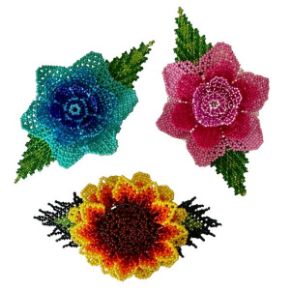
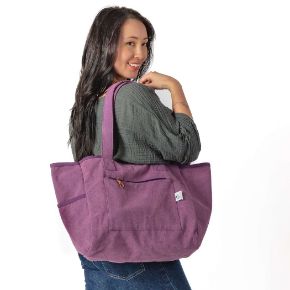
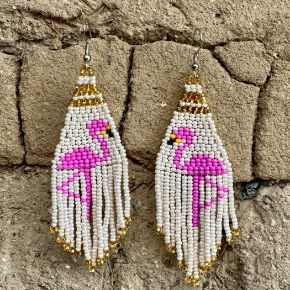
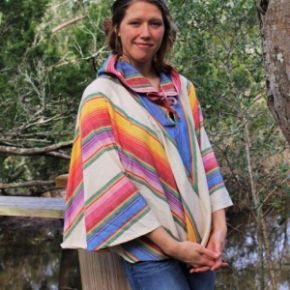

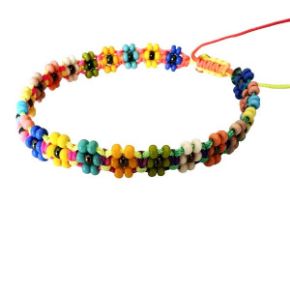
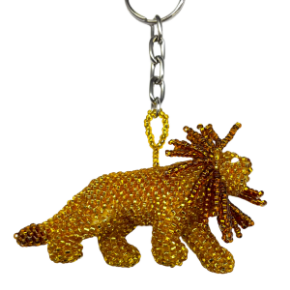
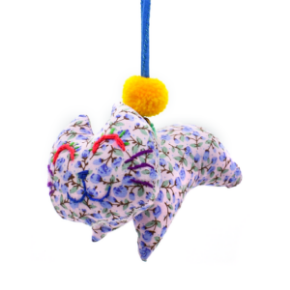
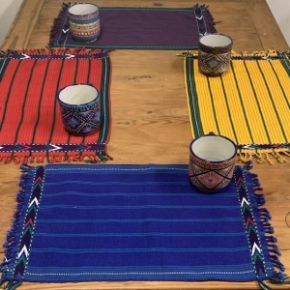
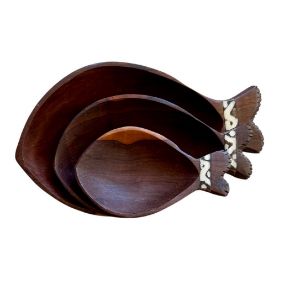

.JPG)
